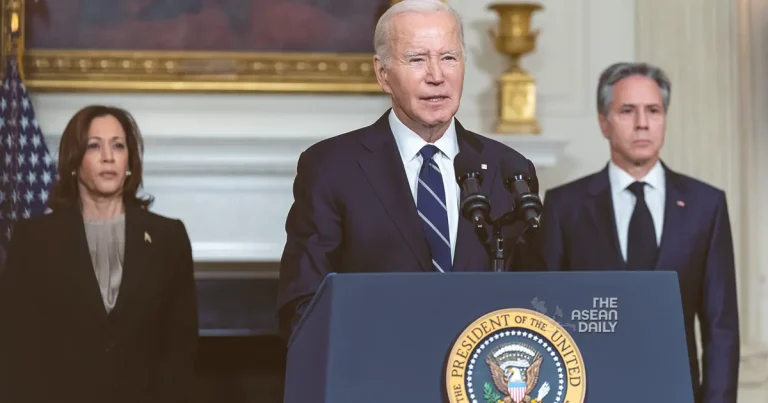16-10-2023 (WASHINGTON) In an interview aired on Sunday, United States President Joe Biden issued a warning to Israel, advising against reoccupying the Gaza Strip. This marks the first significant public effort to influence America’s ally in the wake of the Hamas attack that resulted in the deaths of more than 1,300 individuals, including at least 29 Americans.
Since the October 7 attack, President Biden has provided steadfast support to Israel and refrained from criticizing the country for its retaliatory siege of Gaza, which is controlled by Hamas. Meanwhile, UN officials have raised concerns about a burgeoning humanitarian crisis in the region.
In the new interview with 60 Minutes on CBS, President Biden expressed his apprehensions about a full-scale occupation. He stated, “I think it’d be a big mistake. What happened in Gaza, in my view, is Hamas and the extreme elements of Hamas don’t represent all the Palestinian people. And I think that it would be a mistake for Israel to occupy Gaza again.” However, he stressed the necessity of “taking out the extremists” in the region.
President Biden’s remarks came amid consideration of a visit to Israel in the coming days to show solidarity with the Israeli population still grappling with the aftermath of the Hamas attack. Israeli Prime Minister Benjamin Netanyahu extended an invitation over the weekend, though President Biden has not yet confirmed his visit.
While President Biden did not explicitly advocate for sending ground forces into Gaza temporarily, he did express his support for the goal of dismantling Hamas, a group that, in its founding covenant, advocates “killing the Jews” and the eradication of Israel. Both the United States and the European Union have designated Hamas as a terrorist organization.
“Israel has to respond,” President Biden asserted. “They have to go after Hamas. Hamas is a bunch of cowards. They’re hiding behind the civilians. They put their headquarters where civilians are and buildings and the like.” However, he remained confident that “the Israelis are going to do everything in their power to avoid the killing of innocent civilians.”
Israel withdrew from Gaza in 2005, and Hamas emerged victorious in the 2006 elections, seizing complete control of the territory. Over the years, Hamas and its more radical counterparts have periodically launched attacks on Israel, leading to several brief wars. Israeli forces, which have maintained a blockade on Gaza, entered the region on the ground in 2009 and 2014 but chose not to maintain a presence on both occasions.
In the face of the deadliest attack on Israel in decades, Israeli leaders have asserted that conventional airstrikes are insufficient, and they are determined to eliminate Hamas once and for all. Israel has mobilized 360,000 reservists and amassed substantial forces near Gaza in preparation for an expected invasion.
Even before any ground offensive, Israeli airstrikes and the decision to cut off essential supplies have created a humanitarian crisis, according to international aid organizations. The Palestinian Health Ministry reports at least 2,670 Palestinians in Gaza killed and an additional 9,600 wounded.
President Biden has consistently refrained from criticizing Israel and has emphasized its right to self-defense. He expressed concerns over the humanitarian situation in the 60 Minutes interview and suggested the need for a safe corridor for Palestinians to escape the conflict and receive essential supplies. However, he did not frame these comments as a critique of Israel.
When asked if he concurred with the notion that Hamas must be entirely eliminated, President Biden responded, “Yes, I do. But there needs to be a Palestinian Authority. There needs to be a path to a Palestinian state.”
In response to a query regarding his intentions to seek a second term, considering the conflicts in Ukraine and the Middle East and congressional dysfunction, President Biden affirmed his commitment, citing ongoing diplomatic negotiations to establish normalized relations between Israel and Saudi Arabia. He also highlighted the potential for a more unified Europe and the containment of Russian President Vladimir Putin.
The president concluded, “We have enormous opportunities, enormous opportunities to make it a better world.”




